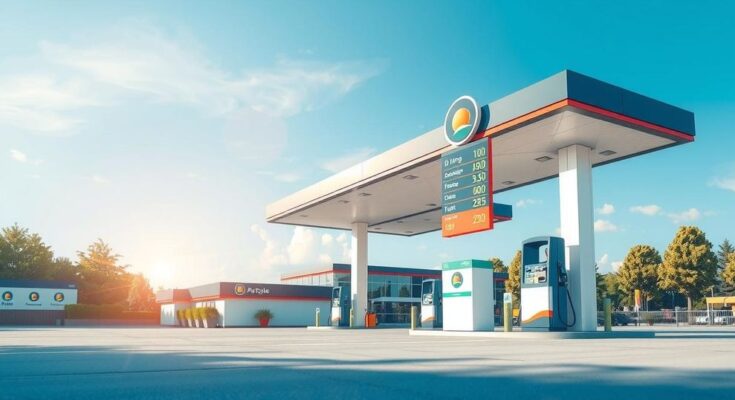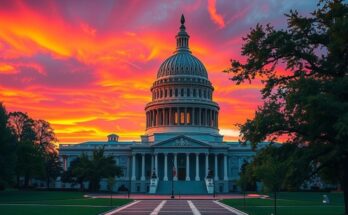Petrol prices in Nigeria have decreased to 860 naira per litre, primarily due to competition from the Dangote Refinery, which has reduced depot prices. These changes follow significant price hikes after the removal of fuel subsidies by President Bola Tinubu. Analysts suggest that the shifts reflect the influence of market competition and are indicative of a more deregulated fuel market.
The price of petrol in Nigeria has recently fallen to 860 naira per litre, largely due to actions taken by the Dangote Refinery, which is a significant local facility. This refinery, boasting a production capacity of 650,000 barrels per day, initiated price reductions in February, which significantly lowered prices from a peak of 1,030 naira over the past five months. In response, the Nigerian National Petroleum Corporation Limited also announced a price reduction shortly thereafter, contributing to the decrease in fuel costs.
Historically, despite being a major oil producer, Nigeria’s ageing state-owned refineries have necessitated fuel imports. Following President Bola Tinubu’s removal of long-standing subsidies, petrol prices surged dramatically, escalating from approximately 195 naira per litre when he took office in May 2023 to as high as 1,300 naira in certain regions by October 2024. This surge contributed to a broader cost-of-living crisis affecting many citizens.
The Dangote Refinery began its operations in September 2024, aiming to reduce Nigeria’s dependency on imported petrol. The refinery’s owner, Aliko Dangote, indicated that the lowered prices are intended to provide relief to Nigerians during Ramadan. Advisors have suggested that these reductions may be strategic moves by Dangote to capture a larger share of the market, even as he refutes claims of pursuing a monopoly.
Market analysts posit that the price adjustments can be linked to a stabilized currency and lower crude oil prices, suggesting that without these factors, petrol prices could have risen further. Clement Isong, representative of the Major Energies Marketers Association of Nigeria, remarked that the price reductions signify the effectiveness of a deregulated market, pointing out that the association’s members source a significant portion of their fuels from the Dangote Refinery.
In summary, the recent decrease in petrol prices in Nigeria can be attributed to competitive dynamics initiated by the Dangote Refinery, which aims to establish market dominance. Despite rising prices following subsidy removal, the current reductions reflect broader economic factors, including currency stability. The implications of these changes indicate a move towards a more deregulated and competitive fuel market in Nigeria.
Original Source: www.hindustantimes.com




